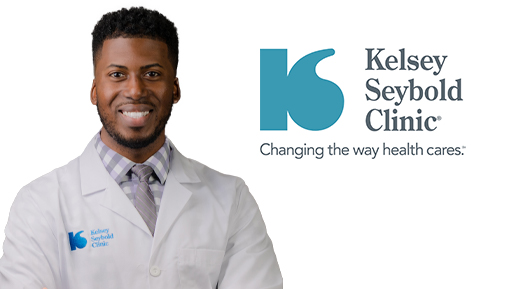Join Our eNewsletter!
Subscribe to our monthly newsletter to receive encouraging advice to help you lead a healthy lifestyle.

Don't Put Off Colorectal Cancer Screenings
Colorectal cancer is the third most common form of cancer diagnosed in the United States. Early detection through screenings catches problems early and can prevent death. Learn why this screening is so important and how to minimize your risk.
Who Is at Risk?
Anyone can get colorectal cancer but there are factors that may put you at greater risk for developing it that you can’t control. These include age, family history of colorectal cancer, race, and having inflammatory bowel disease, hereditary syndromes such as Lynch syndrome, and Type 2 diabetes. Symptoms such as blood in the stool may be a sign of polyps or early cancer.
In 2021, the age to begin colorectal cancer screenings was lowered from 50 to 45. People with an increased risk or high risk of developing colorectal cancer might need to begin screenings before age 45.
Follow Early Screening Guidelines
The American College of Gastroenterology recommends screenings for people ages 45 – 75 who are of average risk. These screenings are important because people can develop polyps – abnormal growths in the colon that can turn into cancer – and colorectal cancer and not know it. Symptoms are not always present, especially right away.
Unfortunately, low screening rates mean only about 38% of colorectal cancer is found through screenings at the early stage. Regular screenings can help discover polyps, which can be removed before they turn into cancer. It can take 10 to 15 years for polyps to develop into colorectal cancer.
There are different options for colorectal screenings based on age and risk. Talk to your doctor on which fits your needs best. Stool-based tests are done annually. Other options include visual exams of the colon and rectum, including colonoscopy, CT colonography, and flexible sigmoidoscopy. These are completed every five to 10 years based on the individual.

Make Changes To Minimize Risk
The good news: the five-year survival rate for those with colorectal cancer is 91% if found early. And there are things you can do to help reduce your risk for developing colorectal cancer:
- Develop a healthy lifestyle – Manage your diet by eating more fruits, vegetables, and whole grains. Limit the intake of processed meats, red meats, fried foods, high-calorie foods, and alcohol. Avoid tobacco completely.
- Watch your weight – Get to and maintain a healthy weight, which may help lower your risk.
- Get physical – Create an active lifestyle by limiting sedentary behavior and increasing the intensity and amount of physical activity. Limiting screen-time entertainment is just one place to start.
Links between weight, diet, and exercise and colorectal cancer risk are some of the strongest for any type of cancer, according to American Cancer Society.
Talk with your Kelsey-Seybold physician if you have questions about colorectal cancer screening and frequency.

